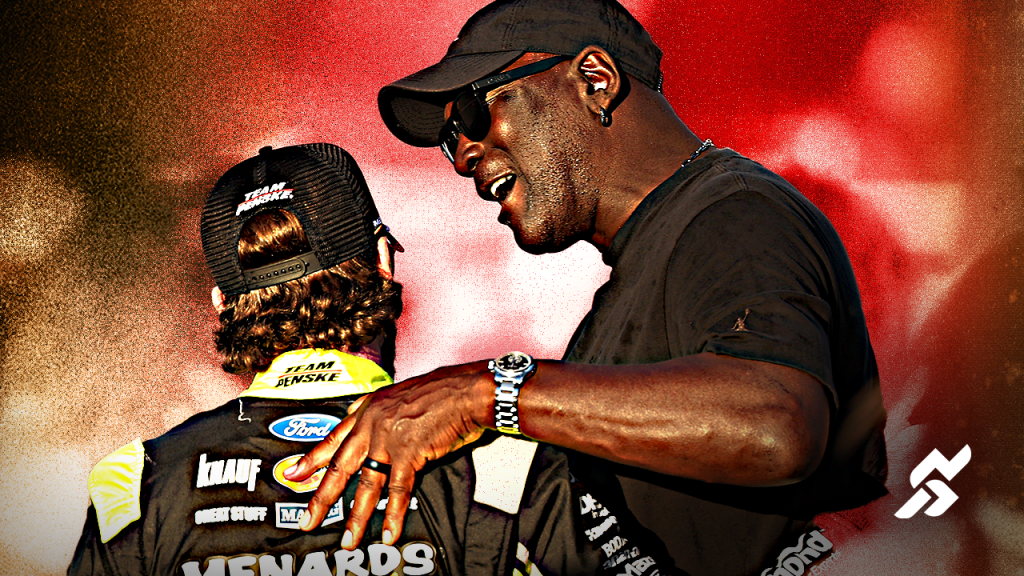NASCAR on Monday motioned U.S. District Judge Kenneth D. Bell to appoint a judge to preside over a settlement conference that, if successful, could avert a trial scheduled for Dec. 1. NASCAR cited Michael Jordan’s recent comments that 23XI Racing—which the NBA legend co-owns with Denny Hamlin and Curtis Polk—has “always been open to a settlement.”
But later Monday, attorney Jeffrey Kessler, the lead counsel for 23XI Racing and Front Row Motorsports, wrote to Bell complaining that NASCAR’s motion “is another effort to play to the court of public opinion and attempt to color the perception” of 23XI and Front Row. Kessler argued that the parties should continue with Jeffrey Mishkin, a prominent sports attorney who was executive vice president and chief legal officer of the NBA and a longtime partner at Skadden Arps, as a mediator. Mishkin now works at Phillips ADR Enterprises.
NASCAR’s brief—authored by Tricia Wilson Magee and other attorneys from Shumaker, Loop & Kendrick and Latham & Watkins—highlights statements by Bell as well as judges from the U.S. Court of Appeals for the Fourth Circuit (which has appellate jurisdiction) that urge the teams and NASCAR to figure out a solution to their dispute. While the dispute has many features, it is ultimately about the charter relationship between NASCAR and teams. Revisions to that relationship could, at least in theory, produce a settlement.
As Magee points out, Bell told the parties on June 17, “I will echo what at least two of the Fourth Circuit judges said during oral argument. This seems ripe for discussion between the parties.”
Magee also contends the timing for a judicial settlement conference is sensible given that pretrial discovery “is closed,” and a jury trial is “fast approaching.” In addition, Magee references how owners of other race teams have provided declarations that recommend settling to avert a trial that could place “the value created by the Charter system at risk.”
While acknowledging Mishkin’s relevant background—he has litigated complex sports-related antitrust disputes and served as an arbitrator or mediator for the NFL, the Court of Arbitration for Sport and FIFA—Magee suggested the parties’ time before Mishkin has run its course. “Despite best efforts,” Magee wrote, “Mr. Mishkin was unable to resolve this matter.”
The commentary on Mishkin underscores the limitations of mediation. While an arbitrator issues a binding decision, a mediator issues a recommendation that, by itself, does not compel any action from the parties. The recommendation only obligates actions if the parties choose to adopt it.
Magee asserts that a judicial settlement conference would be more productive. She maintains a settlement proceeding before a judge would provide an “opportunity for the parties and counsel to engage in settlement discussions with a judicial officer experienced in the legal issues and the issues common to a jury trial in the Western District of North Carolina.”
Kessler’s brief suggests that NASCAR is “not happy with the diagnosis” offered by Mishkin “and wants to seek a second opinion” by having a judge preside over settlement talks. Kessler—who years ago was on the opposite side of Mishkin in disputes where Kessler represented the NBPA and Mishkin represented the NBA—asks Bell to order the parties to engage in another session with Mishkin. Kessler stresses that Mishkin “has invested a great deal of time learning this case and meeting with the parties.”
The timing to install a judicial officer also presents problems, Kessler argues. “With a mere eight weeks until trial,” the attorney wrote, “starting over with a judicial officer who will have to learn the case background and the parties’ history is less likely, not more likely, to lead to resolution, which all interested parties appear to agree is in their collective best interests.”
While it’s telling that the two sides can’t even agree on who should oversee settlement discussions, it’s still possible, if not likely, that the sides reach a deal before a trial starts. A trial is risky for not only the parties but other teams, since a ruling that compels change to NASCAR’s model would, in one way or another, impact those teams.
A trial would also place Jordan, Hamlin, NASCAR CEO Jim France and other high-profile NASCAR figures on the witness stand to field what could be difficult questions on cross-examination.

